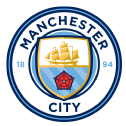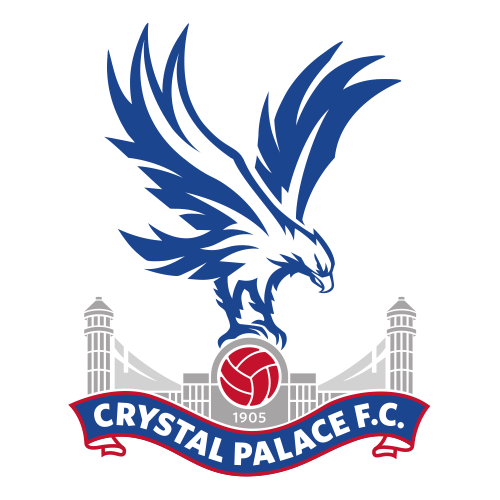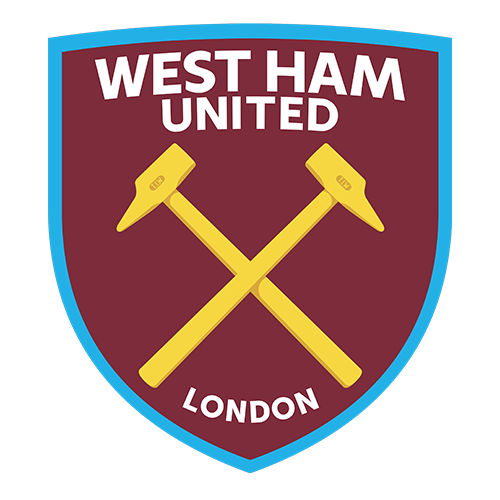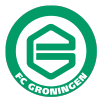With the first international break of the European soccer season quickly approaching, we get one more full weekend of club matches, and it's a doozy. Granted, there aren't many standout Serie A fixtures, but with two matchups of marquee names in the Premier League -- Chelsea-Liverpool and Arsenal-Manchester City -- plus RB Leipzig-VfL Wolfsburg, Lionel Messi's likely Paris Saint-Germain debut and intriguing matchups for quick starters like Sevilla FC and Brighton, there's a lot to take in.
Here's a giant tasting menu for the weekend ahead.
Jump to: Arsenal-Man City | Chelsea-Liverpool | Sevilla-Elche | Leipzig-Wolfsburg | Everton-Brighton, Palace-West Ham | Real Madrid-Betis | PSG-Reims | FC Groningen-PSV


Arsenal at Manchester City
(Saturday, 7:30 a.m. ET / 12:30 p.m. BST)
So... what does Arsenal actually do well at the moment?
Let's attempt the "compliment sandwich" approach to talking about Arsenal's "two matches, zero points" start to Premier League play. We'll surround a hard truth with two positives.
Positive 1: They're tilting the pitch pretty well! Opponents have begun just 11 possessions in the attacking third (a.k.a. Arsenal's defensive third); only five teams have allowed fewer. Granted, opponents aren't giving Arsenal any chances in this regard (they've begun only 12 possessions in the attacking third), but the Gunners are progressing the ball out of their danger zone, and that's helping them to finish more possessions in dangerous areas than their opponents.
Hard truth: They cannot create a quality shot to save their lives. They attempted 22 shots against Brentford, and just one had an xG value higher than 0.10. They actually created two such shots against Chelsea, but managed only six total shots; Chelsea, meanwhile, took 22 shots, five with an xG of 0.3 or higher.
Chelsea might be the best team in Europe right now, so comparing a rebuilding Arsenal to that standard might be unfair. But the Gunners created fewer quality chances against recently-promoted Brentford, too, and through two matches they're attempting fewer shots (0.17 per possession to opponents' 0.19) and averaging 0.07 xG per shot (worst in the Premier League) to opponents' 0.16 (second-worst). They spent a ton of money this offseason, failed to upgrade their attack at all and have ended up in a situation in which last year's strengths are about the same while the weaknesses are weaker.
Positive 2: We might actually see their real lineup this week? That's not so much a positive as a non-negative, I guess. In Wednesday's Carabao Cup match against West Bromwich Albion, Arsenal actually fielded a lineup that it hopes is far closer to what it will field moving forward. Pierre-Emerick Aubameyang finally saw the field after missing matches with a positive COVID-19 test, while midfield re-addition Martin Odegaard (signed from Real Madrid after spending the second half of last season on loan with Arsenal) and goalkeeper Aaron Ramsdale (signed recently from Sheffield United) also started. Forward Alexandre Lacazette, also absent early in the season, made an appearance.
The result: a 6-0 win. Granted, it came against a Championship team playing quite a few reserves, but it at least served as a reminder that Arsenal's meek start in league play didn't come from their best possible lineup. It's unfathomable that they spent so much money only to have to rely heavily on the aging Aubameyang and Lacazette again, but they'll at least be better with those two players available.
Will any of this matter against City? Probably not. After a very City-like loss to Tottenham Hotspur to start the league season -- they dominated possession, attempted far more shots, generated greater xG figures and lost via a single brilliant counterattack, as tends to happen a few times per season -- they thrashed Norwich. They too haven't fielded a full-strength lineup: due to both injury and rest, Kevin De Bruyne, Phil Foden and John Stones have combined for 11 league minutes thus far.
With a potential Harry Kane deal having officially fallen apart (and a brief time when Cristiano Ronaldo was apparently coming to the Etihad), City is an unfinished product itself, but it would still take a surprise result for them to not take three points on Saturday.


Chelsea at Liverpool
(Saturday, 12:30 p.m. ET / 5:30 p.m. BST)
Big names + packed Anfield = must-watch
Granted, it's a little too early in the season for a match of any real league stakes, but any time two of the last three Champions League winners face off, it's a big deal. Chelsea and Liverpool have enjoyed similar starts -- two wins each by a combined 5-0 score, three against teams that will likely finish pretty low in the table (Crystal Palace for Chelsea, Burnley and Norwich City for Liverpool). Both have dominated the ball, taken tons of shots and pushed around lesser competition.
Chelsea won the Champions League and then addressed its biggest issue by adding one of the best strikers in the world, Romelu Lukaku. Liverpool has some unaddressed needs, but Jurgen Klopp's squad actually has healthy centre-backs this year, which is a pleasant change, and the potential emergence of 18-year old winger Harvey Elliott might mean that one of the club's biggest needs has been addressed in-house.
The stakes might not be incredibly high yet, but the quality in this one should be, and it's the biggest match at a full-crowd Anfield in 17 months. That's enough reason to watch.


Sevilla at Elche
(Saturday, 1:30 p.m. ET / 6:30 p.m. BST, ESPN+)
Sevilla is particularly 'Sevilla' thus far
Two matchdays into LaLiga play, only four teams have scored at least four goals, and 10 have allowed one or fewer. Only one has done both: Julen Lopetegui's Sevilla. They haven't won the league since 1946 and haven't finished in the top two since 1957, but they entered the season as one of the clearest potential beneficiaries of Real Madrid's and Barcelona's current financial issues, and they've started well.
Los Nervionenses are comfortable in lower-scoring affairs, and LaLiga is the ultimate low-scoring affair at the moment. Don't expect fireworks against an Elche squad that has scored and allowed a combined one goal in two matches, but Sevilla is always an interesting watch -- lots of long switches of play, lots of stretched-out defenses and, so far this season, plenty of quality shots. They might eventually be destined for another fourth-place finish, but they might have the potential for more this year, especially if they can take a full nine points into the first international break.


RB Leipzig at Wolfsburg
(Sunday, 11:30 a.m. ET / 4:30 p.m. BST, ESPN+)
An early heavyweight (or at least cruiserweight) battle in the Bundesliga
The only perfect team left in the Bundesliga isn't Bayern (drew with Borussia Monchengladbach), RB Leipzig (lost to Mainz) or Borussia Dortmund (lost to Freiburg) -- it's last year's fourth-place team, Mark van Bommel's Wolfsburg. Despite a new manager, they have been following last year's approximate recipe: keep the ball out of dangerous areas, prevent any good looks at goal, get some magic from Wout Weghorst and win.
Weghorst scored the lone goal (and created two chances) in their 1-0 win over Bochum and scored again in a strange DFB-Pokal match against Preussen Munster that the club ended up disqualified from for accidentally using too many substitutes. He got some help in the form of late goals from Ridle Baku and Lukas Nmecha in a comeback win over Hertha Berlin as well.
Now comes a far stiffer test. Jesse Marsch's RBL got jumped early by a fired-up Mainz in the season opener and fell 1-0 despite some decent late chances, but they responded by pummeling Stuttgart, 4-0, last Friday. January addition Dominik Szoboszlai, finally healthy, has scored twice and created five chances in just 94 minutes (and with 11 ball recoveries, no less), and RBL has looked fine since the slow start at Mainz. This is the Sunday headliner, at least among matches that don't involve Messi.


Everton at Brighton
(Saturday, 10 a.m. ET / 3 p.m. BST)


Crystal Palace at West Ham United
(Saturday, 10 a.m. ET / 3 p.m. BST)
Just how good are Brighton and West Ham?
Four of Europe's Big 5 leagues have seen at least two matchdays thus far, and we're somehow already down to only nine perfect teams among the four. Most are unsurprising -- PSG in Ligue 1, Sevilla and Atletico Madrid in LaLiga, Wolfsburg in the Bundesliga, Chelsea and Liverpool in the Premier League. But while Tottenham needed an upset of City to hit two wins in two tries, two other Premier League names stand out: Brighton and West Ham.
Granted, Brighton has wins over Burnley and Watford thus far -- not exactly Champions League contenders. But after a season that saw them perform better on paper than their point total gave them credit for (fifth in xG differential, 16th in the table), the fact that they've come out of the gates with quality isn't a complete surprise. But Rafael Benitez's Everton certainly represents the toughest test they've seen so far, and it's also quite the "possession vs. anti-possession" battle.
Brighton have enjoyed 59% possession so far and take their sweet time advancing the ball up the field: 60% of their passes have taken place in their own half, fourth-most in the league. Everton, meanwhile, are at 39% possession and are averaging 3.0 passes per possession, second-fewest (ahead of only Burnley).
West Ham, meanwhile, is coming off of its best season in ages -- they finished sixth and qualified for the Europa League -- so starting with two wins shouldn't stand out all that much either, especially since they've beaten Newcastle and what was for 50 minutes a 10-man Leicester. But they've still looked good.
Even over the first 40 minutes, the Hammers dominated Leicester, attempting seven shots to the Foxes' two, 0.58 xG to 0.13 and winning 71% of duels. And they treated Newcastle like a top team should. This has given them not only the best goal differential in the league (tied with Chelsea and Liverpool) but also the best xG differential. It's as much as you could hope for after two matches. It was a bit worrisome that West Ham didn't really make any moves to bolster depth with continental play on the horizon, and we'll see if that creates a drag on results. But they're one more good performance away from being perfect at the first international break.


Real Madrid at Real Betis
(Saturday, 4 p.m. ET / 9 p.m. BST, ESPN+)
The eminently watchable Real Madrid
There have been just 39 total goals in 20 LaLiga matches thus far -- less than one per team per match. Eleven of those goals, a full 28%, have come in two Real Madrid matches. Los Blancos beat Deportivo Alaves 4-1 in the opener, then blew an early lead in a 3-3 draw with Levante. Vinicius Junior has three goals, Karim Benzema has two goals and two assists, and, in the greatest show of solidarity Real Madrid has sent toward LaLiga in years, the team has given opponents quite a few high-quality scoring opportunities as well.
Real Betis will test both sides of this generosity -- Manuel Pellegrini's squad prevents too many trips into their defending third, but also doesn't really believe in creating high-quality scoring chances itself.


PSG at Reims
(Sunday, 2:45 p.m. ET / 7:45 p.m. BST)
I don't know, can you think of any reason to watch PSG-Reims?


FC Groningen at PSV Eindhoven
(Saturday, 2 p.m. ET / 7 p.m. BST, ESPN+)
The Champions League dilemma: rewarding champions vs. creating a more competitive league
It's been a while since 1988 European Cup winner PSV was a genuine factor in European soccer -- they've reached the Champions League knockout stages just once in 14 years and haven't actually won a group-stage match since 2016. That won't change this year, since a loss to Benfica in the final qualifying round relegated them to another stint in the Europa League.
The loss to old friend Benfica (the 1988 runner-up) was particularly disappointing, both because of the circumstances of the tie itself -- they were a man up for the last 58 minutes of Tuesday's match, and Eran Zahavi hit the crossbar on a golden opportunity in the second half, leaving them a goal behind -- and because PSV have otherwise been outstanding so far this season. They've outscored two Eredivisie opponents by a combined 6-1, they throttled Ajax, 4-0, to win the Johan Cruyff Shield, and they outscored Galatasaray and Midtjylland by a combined 11-2 in the first two rounds of Champions League qualifying. They've played about 30 poor minutes in nine matches thus far (in the first half of the first leg against Benfica), and it was enough to keep them out of the Champions League.
Really, it was also somewhat disappointing that PSV and Benfica were playing each other at all.
Qualification for the final six spots in the Champions League group stage (aside from the 26 automatic qualification spots) takes place down two paths: the Champions path and the League path. Over the three final qualification rounds, 24 league champions from throughout Europe fought for four allotted Champions path spots in the group stage. Meanwhile, the League path offered 11 second- or third-place teams from various leagues shots at two more group-stage tickets.
The logic makes sense -- it's the Champions League, after all, and league champions should get preferential treatment. It's the same thought that goes into how the groups are drawn: the teams in Pot 1 this year (the "top seeds" for each group, more or less) were six league champions and the winners of last year's Champions League and Europa League.
In practice, however, this assures that the group stage features less overall quality. Using rankings from EloFootball.com, the final two League path pairings saw No. 27 Benfica beating No. 36 PSV and No. 38 Shakhtar Donetsk taking down No. 48 Monaco. Meanwhile, only two of the final eight teams in the Champions path ranked in the top 50 -- Salzburg (No. 25) and Young Boys (No. 34). In one matchup, No. 78 Malmo beat No. 94 Ludogorets; in another, No. 238 Sheriff Tiraspol pulled a massive upset of No. 52 Dinamo Zagreb.
That Sheriff upset Dinamo, thereby giving the Moldovan Divizia Nationala its first-ever Champions League group stage participant, made for a pretty exciting story (and sent many down an entertaining and conflicting Wikipedia rabbit hole). The Wasps will get to host Inter Milan, Real Madrid and nearby Shakhtar Donetsk in what will surely be a packed Sheriff Stadium. But they'll also almost assuredly finish last in their group. Any point they pull from their six contests will be a massive moral victory. Meanwhile, PSV and/or Monaco could have actually done some damage.
You could say that Champions League qualification favors champions just like college basketball's NCAA Tournament, which gives automatic bids to 31 conferences despite the fact that most of them don't have a realistic shot at the title. But the NCAA Tournament also offers a lot more at-large bids for the PSVs of the world and brings the stakes of single elimination to the table. A single good result for Sheriff, or even a monumental upset, probably won't change anyone's title path much.
This is obviously an aesthetics thing with no clear, correct answer (though simply raising the question will get me called an arrogant American again on Twitter). Do we prefer that league champions get preferential treatment so teams like Sheriff can get a moment in the spotlight? Or do we want the Champions League to reward more good teams for playing well, even if they aren't league champions? Is the "champions" thing a silly principle to hold onto considering only two of the last six Champions League winners were domestic champions at all?
Anyway, as a PSA, life is far more entertaining when you're watching fun soccer teams, and you should therefore watch PSV whenever possible, no matter which tournament they landed in.
